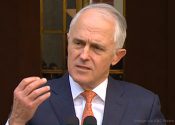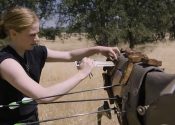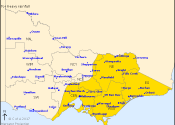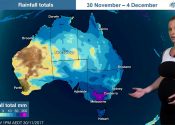
GIPPSLAND // REASONS for the councillor gender gap were discussed in detail at Wednesday’s Connecting Women Across Gippsland conference at Lardner Park.
Above: the panel. Photo: Jack Lacy.
The day-long event, organised by Women in Gippsland, featured inspirational women with stories to tell.
A key part of the conference was a panel on local government representation. Panellists were former Baw Baw Shire councillor Ruth McGowan, Wellington Shire councillor Carolyn Crossley, former mayor Linda Bennet and aspiring Wellington councillor Jess Kearns.
ADVERTISEMENT
Initially, each panellist discussed why women should run for council.
“Having diversity on council is sorely needed,” Ms McGowan said.
“Council typically consists of white, straight men over the age of 60, who have retired, which represents probably only 20 per cent of the population.
“What council needs is the involvement of young people and people from different cultural backgrounds.”
Panellists agreed that one key cause of women not standing for local government was the imposter syndrome, which describes women feeling they do not have the skills to run for office.
“Women feel they have to be perfect in order to run for certain positions,” Ms McGowan said.
“Women have to be 90 per cent confident, whereas men only have to be 20 to 30 per cent.
“Gender inequality, bias, exists because women feel they have to adopt the role of being subservient, which isn’t the case at all.”
Jess Kearns is the youngest youth mayor in Wellington Shire history and plans to stand at the next council election. She said she believed the imposter syndrome concept was accurate but would seek to break it down through putting her name in the ring at the next election.
ADVERTISEMENT
“The imposter syndrome does exist on some level, as well as certain stereotypes associated with gender; ‘if women are involved in local council, can they provide an active voice? Can they take the criticism?'” Ms Kearns said.
“We all have a voice, we all need to be heard.”
Ms Kearns said that as a young person on the Wellington council she would be able to represent those in the community who may not have a voice.
“I feel I can represent young women,” she said.
“It’s important for me to stand up within the local community and represent women like myself.”
Each of the panellists also reflected on who inspired them.
“Sian Gard, the host of this discussion, encouraged me to run for council,” Carolyn Crossley said.
“Sian asked me, ‘how do you want your children to perceive you? A woman who is part of a mother’s club or a woman who is empowering, actively making a difference within the community?’”
Linda Bennett said “Mikaela Power, a current Baw Baw Shire councillor, inspires me,”
“Mikaela once told me everything I needed to learn, I learned at kindergarten. She meant the kindergarten committee, but still, what she says inspires me and other women to have self confidence and proves they can do anything they set their mind to.”
The conference line-up also featured Di Padgett, who discussed the importance of giving, and a large number of other inspirational local women.
Women in Gippsland’s Sallie Jones and Kelly Koochew said they were very pleased with the success of the event and the interactions between women from across Gippsland were highlights.
ADVERTISEMENT
4 responses to “'Imposter syndrome' keeps women away from councils: panel”























I was unable to attend this event so thank you for posting this great article. I will stay tuned for more.
According to Ms. McGowan, who is quoted in this article, it seems that the lack of gender diversity in Baw Baw Shire council can be levelled almost entirely at retired, straight white males over 60 years of age, who apparently aren’t even representative! Could it be that these gents with time on their hands in retirement after long careers, believe that they still have something to offer and give back to the community, hence their ‘over-representation’. Why is that certain groups have to be singled out in this manner, for the perceived shortcomings of others; why does it have to be us and them.
Hi Ian, (and to others that were not at the conference interested in this discussion) may I provide some context for my comments as follows:
I also said that while the typical older male councillor represents some constituents voices (and many do so very well and are hard working councillors) there are other groups in our community that also need to be represented in government at all levels. This includes representatives from youth and aboriginal, LGBTI and CALD communities who voices we rarely hear as elected counicillors.
If you had heard my full comments (and those of the other panel members) you would relise we are not promoting ‘us and them’ but an inclusive democracy where all voices are heard- especially from more women who are under represented at all levels of government. Diversity makes for better decision making, inclusive government and stronger democracy.
And the percentage of the population that is LGBTI for example is…?
Why do we have to keep pandering to minority groups all the time? Just what exactly is wrong with people being in a position on the basis of merit or because they’re actually interested, dedicated and passionate?
It’s about time this pseudo-discrimination and -slander against the ‘normal’ majority ends. For goodness’ sake, even being straight comes under attack now!